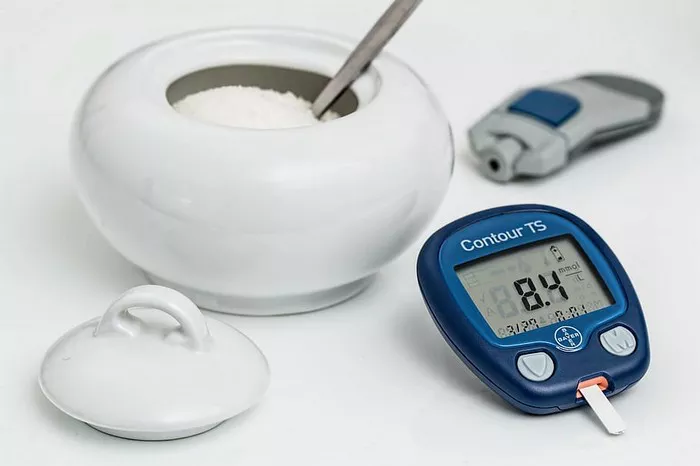Hypoglycemia is a condition characterized by low blood sugar levels, which can lead to various symptoms ranging from mild discomfort to severe complications if left unaddressed. Understanding the dynamics of hypoglycemia, including its symptoms, immediate management strategies, long-term dietary considerations, and the importance of personalized advice, is crucial for individuals aiming to effectively manage this condition. In this article, we delve into the intricacies of hypoglycemia and offer practical dietary guidance to promote stable blood sugar levels and overall well-being.
Explanation of Hypoglycemia
Hypoglycemia occurs when blood sugar levels drop below the normal range, typically defined as less than 70 milligrams per deciliter (mg/dL). This condition is commonly associated with diabetes, particularly if a person is using insulin or certain oral medications to manage their blood sugar levels. However, hypoglycemia can also occur in individuals without diabetes due to various reasons such as excessive alcohol consumption, certain medications, hormone deficiencies, or rare enzyme deficiencies.
The symptoms of hypoglycemia can vary depending on the severity of the condition but often include:
Shakiness
Sweating
Dizziness
Weakness
Hunger
Confusion
Irritability
Rapid heartbeat
Headache
Blurred vision
Seizures
Loss of consciousness (in severe cases)
When blood sugar levels drop too low, the brain is deprived of its primary energy source, glucose, which can result in impaired cognitive function and, in extreme cases, coma or death. Therefore, prompt intervention is essential to raise blood sugar levels back to normal ranges.
Immediate Solutions
During an episode of hypoglycemia, quick action is necessary to alleviate symptoms and prevent complications. The “15-15 rule” is a widely recommended approach for managing acute hypoglycemic episodes in diabetic patients. This rule entails consuming 15 grams of fast-acting carbohydrates, waiting for 15 minutes, and then rechecking blood sugar levels. If blood sugar remains below the target range, another 15 grams of carbohydrates should be consumed.
Examples of foods that can quickly raise blood sugar levels include:
4 ounces (1/2 cup) of fruit juice
5 to 7 Life Savers or other hard candies
1 tablespoon of honey or sugar
3 to 4 glucose tablets
These carbohydrate sources are rapidly absorbed into the bloodstream, providing a swift increase in blood sugar levels to alleviate symptoms of hypoglycemia.
Long-term Dietary Strategies
While addressing acute hypoglycemic episodes is crucial, adopting long-term dietary strategies is essential for preventing recurrent episodes and promoting overall metabolic health. Meal planning plays a pivotal role in maintaining stable blood sugar levels throughout the day. Aim for regular meal times spaced evenly throughout the day, typically every 3 to 4 hours, to prevent prolonged periods of fasting that can trigger hypoglycemia.
When planning meals and snacks, focus on incorporating a balanced combination of complex carbohydrates, lean proteins, and healthy fats. Complex carbohydrates, such as whole grains, legumes, fruits, and vegetables, are digested more slowly, providing a steady release of glucose into the bloodstream and preventing rapid spikes and subsequent crashes in blood sugar levels.
Lean proteins, such as poultry, fish, tofu, beans, and lentils, help stabilize blood sugar levels by slowing down the digestion and absorption of carbohydrates. Additionally, including healthy fats from sources like nuts, seeds, avocado, and olive oil in meals and snacks can further enhance satiety and promote stable blood sugar levels.
Healthy Food Choices
Opting for nutrient-dense foods is key to supporting overall health and managing hypoglycemia effectively. Here are some examples of healthy food choices that can contribute to stable blood sugar levels:
Whole grains: Quinoa, brown rice, oats, barley
Lean proteins: Chicken breast, turkey, fish, tofu, tempeh
Non-starchy vegetables: Leafy greens, broccoli, cauliflower, bell peppers
Legumes: Beans, lentils, chickpeas
Healthy fats: Nuts, seeds, avocado, olive oil
Fruits: Berries, apples, oranges, pears (in moderation due to their natural sugar content)
These foods provide a balanced array of nutrients, including fiber, vitamins, minerals, and antioxidants, which support optimal metabolic function and blood sugar regulation.
Foods to Avoid
In addition to making healthy food choices, it’s essential to be mindful of foods that can cause rapid fluctuations in blood sugar levels and exacerbate hypoglycemia. Foods high in refined carbohydrates and added sugars, such as sugary beverages, pastries, candy, and white bread, can lead to rapid spikes in blood sugar followed by subsequent crashes.
Furthermore, alcoholic beverages can interfere with the body’s ability to regulate blood sugar levels and may increase the risk of hypoglycemia, especially if consumed on an empty stomach or in excess.
Portion Control
While the quality of food choices is paramount, the quantity consumed also plays a significant role in managing blood sugar levels. Practicing portion control helps prevent overeating and allows for better control of carbohydrate intake, thereby minimizing the risk of blood sugar fluctuations.
Aim to fill half of your plate with non-starchy vegetables, one-quarter with lean protein, and one-quarter with complex carbohydrates. Additionally, be mindful of serving sizes for carbohydrate-containing foods, such as grains, fruits, and starchy vegetables, to avoid excessive intake that could lead to elevated blood sugar levels.
Personalized Advice
Individualized dietary recommendations are essential for effectively managing hypoglycemia, as dietary needs can vary based on factors such as age, gender, weight, physical activity level, medication use, and overall health status. Therefore, it’s advisable to consult with a healthcare provider, such as a registered dietitian or endocrinologist, to develop a tailored nutrition plan that meets your specific needs and goals.
A healthcare professional can assess your current dietary intake, blood sugar levels, medication regimen, and other pertinent factors to provide personalized recommendations aimed at optimizing blood sugar control and overall well-being. Additionally, they can offer guidance on meal timing, portion sizes, carbohydrate counting, and lifestyle modifications to support long-term success in managing hypoglycemia.
Conclusion
In conclusion, adopting a balanced and individualized approach to nutrition is essential for effectively managing hypoglycemia and promoting overall health and well-being. By understanding the principles of blood sugar regulation, making healthy food choices, practicing portion control, and seeking personalized advice from healthcare professionals, individuals can empower themselves to take control of their health and thrive despite the challenges of hypoglycemia.



























